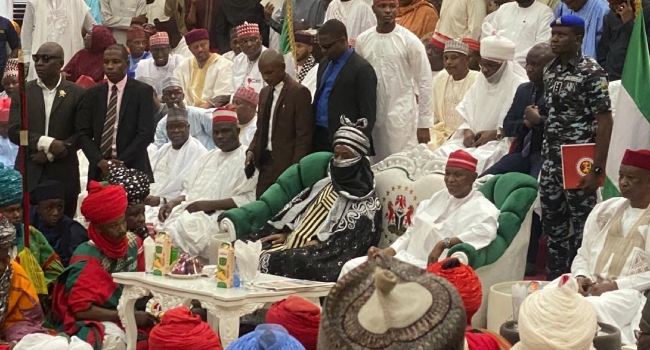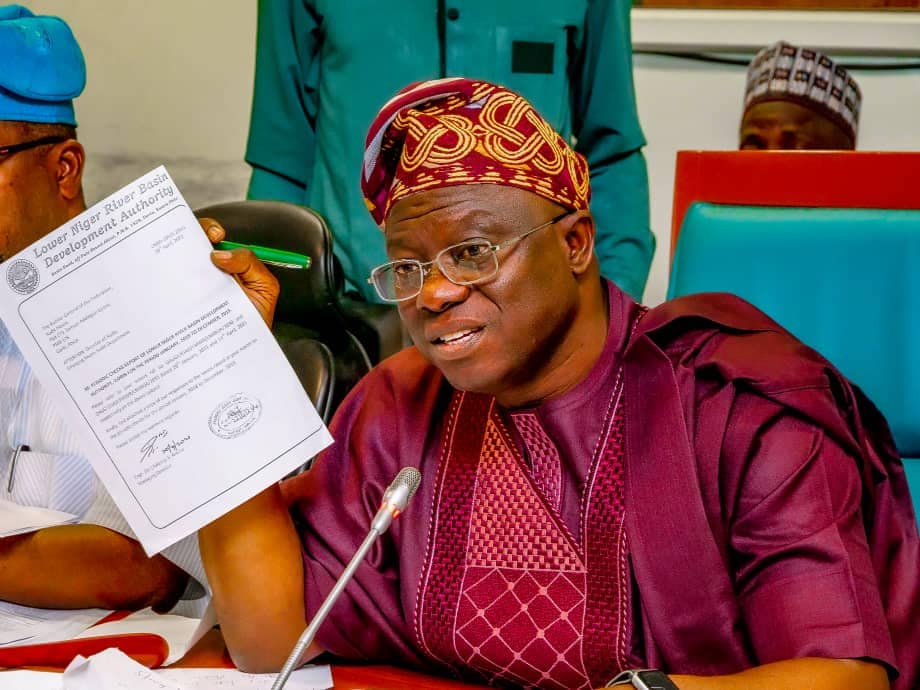
•Falana lauds judgment , urges immediate implementation
A Federal High Court sitting in Abuja has ordered probe of the spending of $5 billion Abacha loot by administrations of erstwhile leaders, Olusegun Obasanjo, Umaru Musa Yar’Adua, Goodluck Jonathan and Muhammadu Buhari.
The court also directed the President Bola Tinubu government to disclose the exact amount stolen by the General Sani Abacha regime and agreements struck by preceding administrations.
The judgment by Justice James Kolawole Omotosho followed a Freedom of Information suit numbered: FHC/ABJ/CS/407/2020, brought by the Socio-Economic Rights and Accountability Project (SERAP).
Joined as defendants in the case are Minister of Finance, as well as Attorney General of the Federation and Minister of Justice.
In his judgment, Justice Omotosho held that the application was meritorious, ordering the Federal Government, through the Ministry of Finance, to furnish SERAP with full spending of about $5 billion Abacha loot within seven days of ruling.
The judge ordered government to disclose details of projects executed with the recovery, locations, names of companies and contractors since return of democracy in 1999.
He also directed government to publish specific roles played by World Bank and partners in the execution of any project funded with the loot. The judge dismissed all objections raised by government and upheld SERAP’s arguments.
Consequently, the court entered judgment in favour of the civil rights.
Justice Omotosho ruled: “The failure of Minister of Finance to write to SERAP, informing it of where the said information exists or to transfer the request to public office, which has custody of such information, is fatal to their case under Section 5 of the Freedom of Information Act.
“The ministry cannot use a blanket statement that it was not in possession of the said records of about $5 billion Abacha loot sought by SERAP. The government failed to provide details of the projects executed with the money. It also failed to provide locations of the projects and the names of companies and contractors that carried out or are carrying out the projects funded with the money.”
He held that by the wordings of Section 7 of the Freedom of Information Act, 2011, access to information about spending details of the $5 billion Abacha loot was denied SERAP by the Federal Government.
He went on: “The Federal Government had filed a 14-paragraph counter affidavit deposed to by Abah Sunday, litigation officer in the office of the Attorney General of the Federation, argued that SERAP’’s suit is frivolous, as it has not shown that government denied it the information it seeks.”
“The Federal Government has also stated that SERAP has not established sufficient interest in its application. The government had urged the court to dismiss the suit.
“For the sake of emphasis, possession of locus standi has been the bane of the citizens’ advocates, in the public interest litigation, to query transparency and accountability in governance in Nigeria.
“In a democratic dispensation, such as Nigeria, the citizens have been proclaimed owners of sovereignty and mandates that place leaders in the saddle.
“The requirement is a serious fracture of the citizens’ inalienable right to ventilate their grievances against poor governance vis-à-vis expenditure of public funds generated from their taxes.”
Meanwhile, senior lawyer, Femi Falana, has welcomed the judgment.
In a statement, he said: “The judgment could not have come at a more opportune time than now. Because of the economic hardship to, which the poor people of Nigeria have been subjected by a reckless ruling class, the question of public accountability is now on the front burner.
“Having regard to involvement of World Bank in the mismanagement of Nigerian economy, the order of court directing disclosure of details of specific roles played by the bank and other partners in execution of projects funded with Abacha loot since 1999 is very commendable.
“The judgment is an important step towards reversing a culture of secrecy and corruption that has meant that high-ranking government officials continue to look after themselves at the expense of the well-being of majority of Nigerians, and development of the country.
“This is a crucial precedent that vindicates the right to a transparent and accountable government, and affirms the human right of the Nigerian people to live a life free from want and fear.
“The Tinubu administration should obey the judgment and hold former Presidents Olusegun Obasanjo, Umaru Musa Yar’Adua, Goodluck Jonathan and Muhammadu Buhari to account without further delay.”













